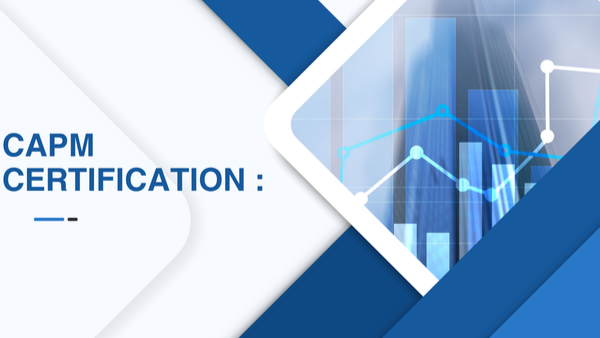
Bottlenecks in Project Management: Causes, Types, and How to Overcome Them
Bottlenecks can hinder your project's progress, lead to delays, and even threaten its overall success. Discover how to effectively manage, mitigate, and control these obstacles throughout your project lifecycle. By doing so, you can ensure timely delivery, maintain client satisfaction, and keep your team operating at peak productivity.
Table of Contents
- What is a bottleneck in project management?
- Types of bottlenecks
- 1. resource bottlenecks in project management
- 2. process bottlenecks
- 3. communication bottlenecks
- What problems do bottlenecks cause?
- How to manage bottlenecks
- 1. identify bottlenecks early
- 2. allocate resources wisely
- 3. streamline processes
- 4. improve communication
- 5. use contingency plans
- Tools to identify and resolve bottlenecks
- Conclusion
In the world of project management, bottlenecks are one of the most common challenges that teams face. They can slow down progress, create inefficiencies, and even derail entire projects if not addressed properly. Whether you're a seasoned project manager or just starting your journey, understanding bottlenecks and how to manage them is crucial for success.
In this article, we’ll explore what bottlenecks in project management are, the different types of bottlenecks, the problems they cause, and how to effectively manage them. We are at Certifyera, a PMI Authorized Training Partner (ATP) that offers top-notch project management courses to help you master these skills.
What Is a Bottleneck in Project Management?
A bottleneck in project management refers to a point in a process where the flow of work is impeded, causing delays and inefficiencies. Think of it like a literal bottleneck—narrowing the flow of liquid. In projects, this narrowing can occur due to limited resources, inefficient processes, or poor communication.
Bottlenecks can happen at any stage of a project, from planning to execution, and they often lead to missed deadlines, budget overruns, and frustrated team members. Identifying and addressing bottlenecks early is key to keeping your project on track.

Types of Bottlenecks
Bottlenecks can manifest in various forms, depending on the nature of the project and the team. Here are the three most common types:
1. Resource Bottlenecks in Project Management
Resource bottlenecks occur when there’s a shortage of critical resources, such as skilled personnel, equipment, or budget. For example, if a key team member is overloaded with tasks or a specific tool is unavailable, it can slow down the entire project.
Resource bottlenecks are particularly challenging because they often require reallocating resources or finding alternative solutions, which can be time-consuming.
2. Process Bottlenecks
Process bottlenecks arise when a specific step in the workflow becomes a hindrance. This could be due to outdated processes, unnecessary approvals, or inefficient tools. For instance, if a project requires multiple layers of approval before moving forward, it can create delays.
3. Communication Bottlenecks
Poor communication is a major cause of bottlenecks in project management. When team members aren’t on the same page, misunderstandings can occur, leading to rework and delays. Communication bottlenecks often stem from unclear instructions, lack of collaboration tools, or siloed teams.
What Problems Do Bottlenecks Cause?
Bottlenecks can have a ripple effect on your project, leading to several problems:
-
Missed Deadlines: Delays in one area can push back the entire project timeline.
-
Increased Costs: Bottlenecks often lead to overtime work or the need for additional resources, driving up costs.
-
Lower Team Morale: Frustration and stress can build up when team members feel stuck or overwhelmed.
-
Reduced Quality: Rushing to meet deadlines after a bottleneck can compromise the quality of the deliverables.
How to Manage Bottlenecks
Managing bottlenecks effectively requires a proactive approach. Here are some strategies to help you overcome them:
1. Identify Bottlenecks Early
Use project management tools to monitor workflows and identify potential bottlenecks before they become major issues. Regular check-ins with your team can also help you spot problems early.
2. Allocate Resources Wisely
For resource bottlenecks, ensure that resources are distributed evenly and that no single team member is overloaded. Cross-training team members can also help mitigate resource shortages.
3. Streamline Processes
Review your workflows regularly and eliminate unnecessary steps. Automating repetitive tasks can also help reduce process bottlenecks.
4. Improve Communication
Invest in collaboration tools and establish clear communication channels. Regular team meetings and status updates can keep everyone aligned and informed.
5. Use Contingency Plans
Always have a backup plan in case of unexpected bottlenecks. This could include having additional resources on standby or adjusting project timelines.
Tools to Identify and Resolve Bottlenecks
Several tools can help you identify and manage bottlenecks effectively:
-
Project Management Software: Tools like Asana, Trello, and Microsoft Project provide visual workflows that make it easy to spot bottlenecks.
-
Resource Management Tools: Platforms like Resource Guru and Float help you allocate resources efficiently.
-
Communication Tools: Tools like Slack and Microsoft Teams facilitate seamless communication among team members.
-
Process Mapping Tools: Software like Lucidchart and Visio can help you visualize and optimize your workflows.
Conclusion
Bottlenecks in project management are inevitable, but with the right strategies and tools, you can minimize their impact and keep your projects on track. Whether it’s resource bottlenecks, process inefficiencies, or communication gaps, addressing these challenges proactively is key to successful project delivery.
If you’re looking to enhance your project management skills and learn how to tackle bottlenecks effectively, consider enrolling in a course with Certifyera. As a PMI Authorized Training Partner, Certifyera offers a range of project management certification courses, including PMP, CAPM, and Agile certifications, designed to equip you with the knowledge and tools you need to excel in your career.
Ready to take your project management skills to the next level? Explore Certifyera’s project management courses today and start your journey toward becoming a bottleneck-busting pro!
By understanding and addressing bottlenecks, you can ensure smoother workflows, happier teams, and more successful projects. Don’t let bottlenecks hold you back—take control and lead your projects to success!

About Anita Ankam
Anita Ankam – Expert Project Management Instructor
Anita Ankam is a highly experienced and certified project management instructor, specializing in globally recognized methodologies such as PMP®, PMI-ACP®, DASM®, and DASSM®. With an extensive academic background, including an MBA and MSc, Anita holds multiple industry-leading certifications, including PRINCE2, PRINCE2 Agile Practitioner, CSM, ASM, ITIL, and Six Sigma Black Belt.
As an authorized training instructor, Anita has guided countless professionals in mastering project management frameworks and agile practices. Know more.
Related Posts

Featured Links
Contact us
- PMP® Certification Course |
- CAPM Certification Course |
- PMP Certification Training in Mumbai |
- PMP Certification Training in Pune |
- PMP Certification Training in Hyderabad |
- PMP Certification Training in Delhi |
- PMP Certification Training in Chennai |
- PMP Certification Training Course in Ahmedabad |
- PMP Certification Training Course in Bangalore |
- PMP Certification Training Course in Bhubaneswar |
- PMP Certification Training Course in Chandigarh |
- PMP Certification Training Course in Gandhinagar |
- PMP Certification Training Course in Faridabad |
- PMP Certification Training Course in Dombivli |
- PMP Certification Training Course in Coimbatore |
- PMP Certification Training Course in Ghaziabad |
- PMP Certification Training Course in Gurgaon |
- PMP Certification Training Course in Indore |
- PMP Certification Training Course in Jaipur |
- PMP Certification Training Course in Mysore |
- PMP Certification Training Course in Lucknow |
- PMP Certification Training Course in Kolkata |
- PMP Certification Training Course in Kochi |
- PMP Certification Training Course in Nagpur |
- PMP Certification Training Course in Navi Mumbai |
- PMP Certification Training Course in Patna |
- PMP Certification Training Course in Pimpri |
- PMP Certification Training Course in Vadodara |
- PMP Certification Training Course in Trivandrum |
- PMP Certification Training Course in Thane |
- PMP Certification Training Course in Surat |
- PMP Certification Training Course in Noida |
- PMP Certification Training Course in Visakhapatnam |
- PMP® Certification Training Course in Doha |
- PMP Certification Training in New York |
- PMP Certification Training Course in Chicago |
- PMP Certification Training in Austin |
- PMP Certification Training in Minneapolis |
- PMP Certification Training in Atlanta |
- PMP Certification Training in Dallas |
- PMP Certification Training in San Diego |
- CAPM Certification Training in Mumbai |
- CAPM Certification Training in Bangalore |
- CAPM Certification Training in Hyderabad |
- CAPM Certification Training in Delhi |
- CAPM Certification Training in Pune |
- CAPM Certification Training in Chennai |
- CAPM certification Training in Kolkata |
- CAPM certification Training in Gurgaon |
- CAPM certification Training in Noida |
- CAPM Certification Training in Ahmedabad |
- PMI Certified Professional in Managing AI (PMI-CPMAI)™ |
- PMI-RMP - PMI Risk Management Professional |
- PMI-PMOCP - PMI® Project Management Office Certified Professional
- AZ-900: Microsoft Azure Fundamentals |
- AZ-104: Microsoft Azure Administrator |
- AZ-204: Developing Solutions for Microsoft Azure |
- AZ-305: Designing Microsoft Azure Infrastructure Solutions |
- AZ-400: Designing and Implementing Microsoft DevOps Solutions |
- AZ-500: Microsoft Azure Security Technologies |
- AI-900: Microsoft Azure AI Fundamentals |
- DP-900: Microsoft Azure Data Fundamentals |
- CLF-C02: AWS Certified Cloud Practitioner |
- GCP-FC: Cloud Digital Leader |
- GCP-ACE: Associate Cloud Engineer |
- GCP-PCA: Professional Cloud Architect |
- GCP-PCD: Professional Cloud Developer |
- GCP-PCE: Professional Cloud DevOps Engineer |
- GCP-PDE: Professional Data Engineer |
- GCP-PCNE: Professional Cloud Network Engineer |
- GCP-PCSE: Professional Cloud Security Engineer |
- GCP-ML: Professional Machine Learning Engineer |
- GCP-PBA: Professional Business Intelligence Analyst |
- DP-100: Designing and Implementing a Data Science Solution on Azure |
- DP-203: Data Engineering on Microsoft Azure
- PMP® is a registered mark of the Project Management Institute, Inc.
- CAPM® is a registered mark of the Project Management Institute, Inc.
- PMI-ACP® is a registered mark of the Project Management Institute, Inc.
- Certified ScrumMaster® (CSM) ia a registered trademark of SCRUM ALLIANCE®
- While we strive to ensure that all prices listed on our website are accurate, we reserve the right to modify them at any time without prior notice.
Copyright © Certifyera Consulting Services. All Rights Reserved | Designed and Developed by WebAnaya


.png)